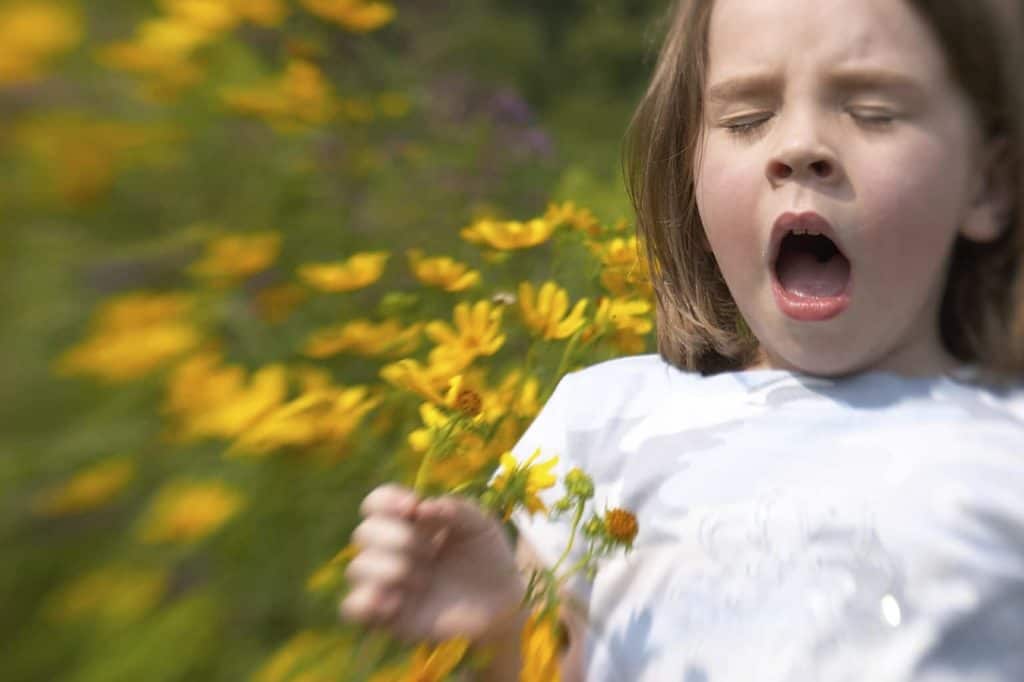Beat hayfever with homeopathy

 If this time of year is a sore-eyed, sneezy, itchy drag for you, then you’re by no means alone. One in four Britons suffers from hayfever, compared with one in eight in the early 1980s – and, in line with asthma and eczema, allergic hayfever is on the increase. Due to global warming and mild, early springs, not only has the hayfever season extended, pollen counts have also risen dramatically in the past decade. And pesticides and pollution only add to the allergic mix. Homeopath Sue Leach offers a natural alternative to Piriton and Beconase
If this time of year is a sore-eyed, sneezy, itchy drag for you, then you’re by no means alone. One in four Britons suffers from hayfever, compared with one in eight in the early 1980s – and, in line with asthma and eczema, allergic hayfever is on the increase. Due to global warming and mild, early springs, not only has the hayfever season extended, pollen counts have also risen dramatically in the past decade. And pesticides and pollution only add to the allergic mix. Homeopath Sue Leach offers a natural alternative to Piriton and Beconase
[swpm_protected for=”4″ format_protected_msg=”1″]
Homeopathy meets this (sorry about the pun!) head on. Not only can a homeopath relieve your symptoms, they can stop your hayfever for ever – and that’s without side effects, such as drowsiness. Homeopathic remedies are made from natural sources (such as the allium plant), and can work in several ways:
- By raising your body’s own in-built ability to heal itself, so you become less susceptible to your usual triggers, such as grass, pollen and mould.
- By desensitising you to particular allergens. Homeopaths can give a miniscule dose of the particular culprit(s) for your sneezing and sniffles, which (in a similar way to vaccinations) raises your immunity to them. Sometimes just one weed can be the cause of all that torture!
- By getting to the heart of why you suffer from hayfever. This may be an inherited tendency, or stress related, or may have started after a jolt to the system like an illness or vaccination. Sometimes by tracing back to when the hayfever began or addressing underlying causes (which may be inherited or worsened by emotional issues) a homeopath can stop you suffering ever again.
The bottom line is homeopaths do not treat your hayfever – they treat you as an individual person with hayfever.
The Natural Health Hub is bang in the middle of the New Forest, a pollen purgatory, yet hayfever sufferers who’ve had homeopathic treatment who would by now normally be streaming are reporting just a few mild symptoms this year, if any.
What’s your trigger?
This is a rough guide to what causes symptoms when. Just about all hayfever sufferers are affected by grass, and bear in mind that the seasons are getting earlier, so this May we found that many people were already suffering from pine pollen.
March: alder, poplar, elm, yew
April: birch, plane, ash, willow
May: oak, horse chestnut, hornbeam, rapeseed
June: pine, lime, grass, plantain
July: sweet chestnut, grass, nettle, dock
August: various weeds, grass
Autumn: moulds
Specific symptoms
Homeopaths have over 100 remedies that can conquer hayfever – our task is to find the exact remedy that fits your exact symptoms. These should be taken in the 30c potency, at half-hour intervals (maximum six doses daily).
Some that are commonly used are:
Allium cepa: nose runs like a tap, often making nostrils/upper lip red raw.
Arsenicum album: thin, watery drip from the nose that leaves skin sore. Nasal passages feel blocked, often with sneezing that brings no relief.
Arundo: burning and itching in ears and roof of the mouth, then can go on to include conjunctivitis. With sneezing and itchy nose.
Euphrasia: Centres on the eyes, which stream with burning tears leaving them sore, red and sensitive.
Sabadilla: sneezing, sometimes blow-your-head-off strength! Also often with discharge from nose and eyes.
Succinum: Extreme itchiness. Lots of sneezing, and the whole respiratory tract is irritated and inflamed.
Wyethia: the textbook hayfever remedy – try if none of the others seem to match your symptoms.
Kits are also available containing remedies to desensitise you to grass and plant pollens.
Give us a call today for advice on combating your hayfever.
[/swpm_protected]
